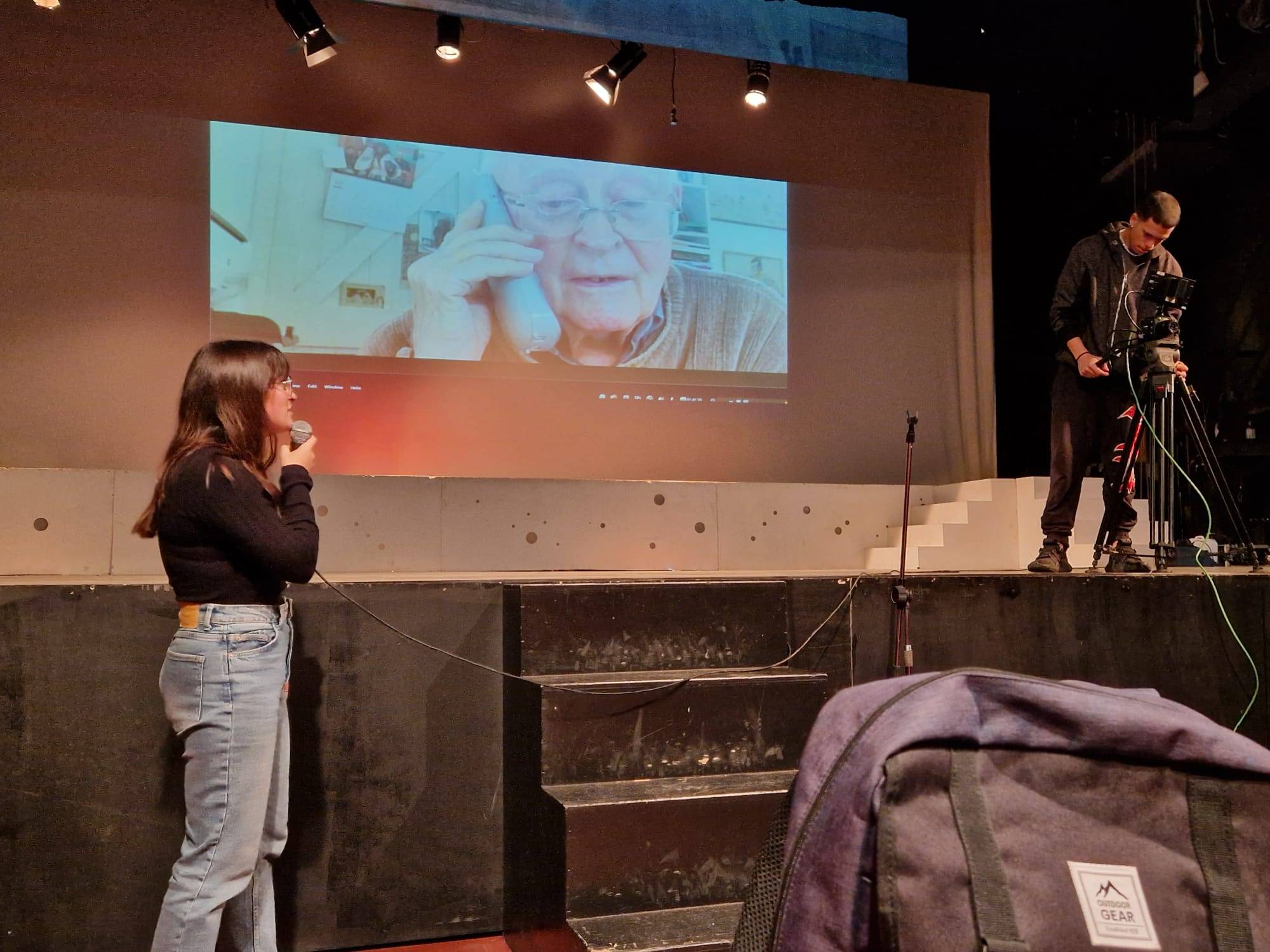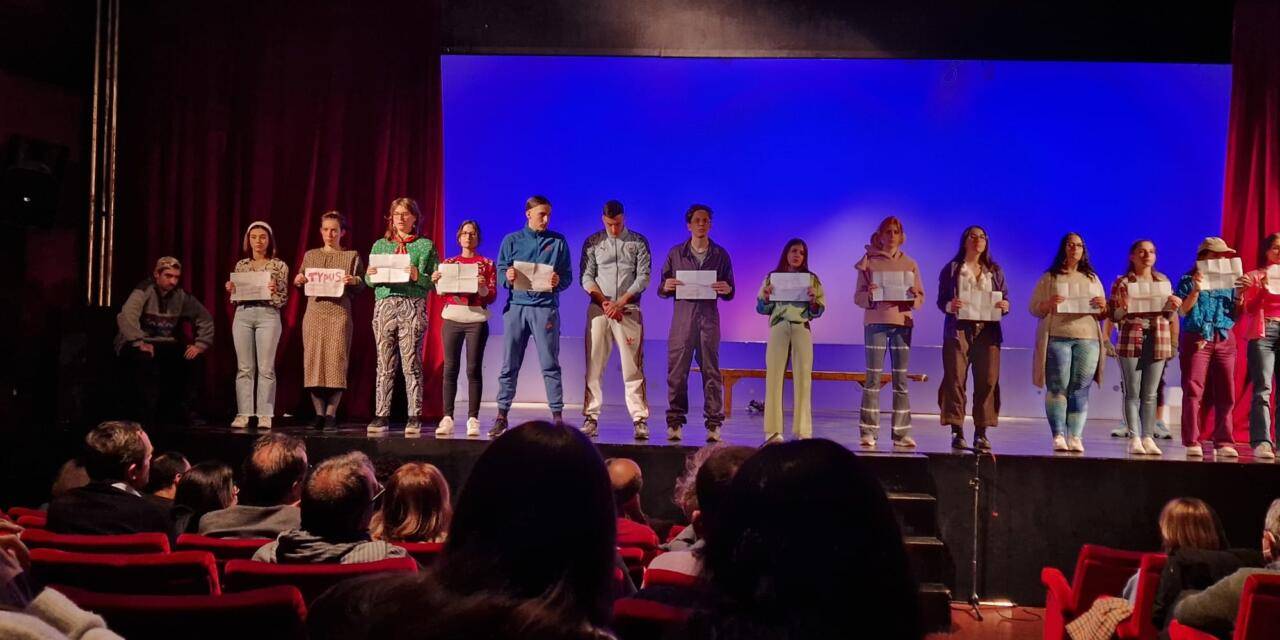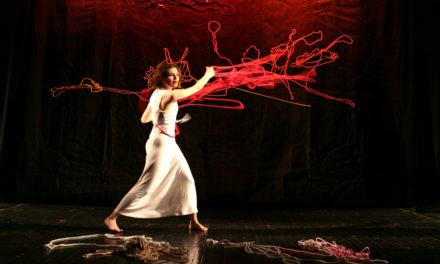Since 2015 my theatre studies colleague, Cristina Cavecchi, and I have been leading Shakespeare prison workshops at the Puntozero Beccaria Theatre. This two-hundred-seater theatre is the only one in Europe situated inside a Young Offenders Institution, which is fully accessible to the general public. Every year, we join founders and artistic directors, Giuseppe Scutellà and Lisa Mazoni, to set up a new workshop, whose participants are a mix of university students (from the Humanities and Law faculties at Milan University), members of Puntozero Beccaria company, and young inmates. The prison workshop is also unusual in that university students receive credits for their attendance.
As a teacher and workshop leader, it is hugely challenging to lead such a mixed group, but the results have been startling; our students find a door open on a world they knew little about, as do the inmates and members of Puntozero (some of whom are former prisoners). Thanks to these workshops, during which we adapt, rewrite, and perform a Shakespeare play – participants –and leaders – go on a journey of discovery. As participants come to understand themselves better as well as the lives of people very different from themselves, they grow empowered and hopefully become more proactive citizens.
In 2022, we received EU funding for the first time. TYPUS (Transforming Young People Using Shakespeare) is a Creative Europe program, involving partners in Greece, Norway, and Italy. The Milan team, made up of Cristina Cavecch, Lisa Mazoni, and Giuseppe Scutellà and myself, supported by junior researcher Marta Fossati, designed the overall program, whose aim is to encourage and support the development of young prisoners and university students, through the study, rewriting and performance of Shakespeare’s Romeo and Juliet.
We aim to empower the participants, many of whom come from disadvantaged backgrounds on the margins of society. This objective is being pursued through a carefully planned series of theatre workshops in the three partner countries, which produce short catalyst plays. In May 2024, fragments from these plays will be part of a final multi-lingual performance at the Beccaria Puntozero Theatre.
In this short account, I can only outline a fraction of TYPUS’s activities. Seeing that I am part of the Milan group, I will focus on the process behind our first catalyst play, Shakespeare and the Law, performed at the Beccaria Puntozero theatre in June 2023. A group of around 40 participants, including Milan University students, Puntozero company members, and young prison inmates, took part in a workshop over five consecutive Saturdays. Some activities include the entire group, while others are carried out in small groups.

Photo Credit: Vanessa Costa
LARGE GROUP ACTIVITIES
In the opening sessions, Cristina Cavecchi and I gave all attendees an introduction to Romeo and Juliet. There were also short seminars led by experts from Milan University; Lucio Camaldo, a specialist in Juvenile Law, Letizia Mancini, a specialist in the Philosophy and Sociology of Law, and Luigi Cominelli, Chair of the Working Group on Dispute, Resolution and Civil Justice, made a valuable contribution to our program. An online conversation with playwright Edward Bond, who provocatively told the group that Shakespeare should not be performed for the next ten years and only then if people felt a real need to do so, was received with dissent by many participants, who passionately believe that Shakespeare is worth performing.
SMALL GROUP ACTIVITIES
Most of our activities are carried out in small groups, with attendees deciding whether they want to work as actors or dramaturgs, press and media officers, photographers or video-makers. Since each group carries out a specific task, with a deadline, they soon bond and feel empowered by their new status. It is by working and navigating a place in their respective group, that participants can slowly forge a new identity.
For reasons of space, I can only give two examples of these group activities.
THE DRAMATURGS
In his role as director, Giuseppe Scutellà treated the text of Romeo and Juliet as a kind of mosaic, whose scenes are selected or discarded according to the overall structure. For one of the scenes in the catalyst play, he asked the group of dramaturgs to produce a modern Italian translation rather than the more classical Italian used in the rest of the play. Friar Lawrence’s disquisition seems fundamental to me, regarding the aims of the TYPUS project, since it highlights the mutability and duality of everything in the cosmos. These concepts are, moreover, fundamental to understanding the transformation we are trying to achieve in young people. I, therefore, helped the group to achieve a translation of this speech that was philologically close to the original script, but also favored contemporary, sometimes idiomatic Italian, so distinguishing it from the rest of the Shakespeare scenes. Like the other small groups, the dramaturgs quickly bonded and contributed to what were lively discussions on our translation strategies and choices. Judging by their very different drafts of the monologue, over the five sessions, some of them definitely improved their writing skills and style, too.
THE ACTORS
The acting group meets both in the theatre and in a specially designated room inside the prison, meaning that this group’s attendees have the extra experience of working inside a prison. It also means that some inmates who aren’t allowed in the theatre, can take part in the workshop (in the past their contribution has sometimes been included on video in the final performance).
The final performance of the catalyst play was generally fast-paced and brightly lit. The director developed a great deal of physical action and movement, keeping words to a minimum. For example, the opening scene, where we find the Capulet servants, noisily voicing their views on the ongoing feud in Verona, sprang vividly to life, thanks to the colloquial language, but also the carefully studied gestures and physicality. Scutellà, moreover, who has trained some of the inmates for several years, knows that he can count on their ability to perform the scenes of violence, with striking authenticity. The young man, playing Tybalt, created a superb ‘King of the Cats’, swaggering on stage, knife in hand, showing he was itching for a fight with his antagonists.
In sharp contrast, Friar Lawrence’s monologue represents a quiet moment in the play, which was bathed in soft blue lighting. Scutellà asked the university student actor, who had never performed before, to deliver the monologue like a sermon, and to help him understand the character better, the director referenced Girolamo Savonarola, the Italian preacher and reformer, who in his youth wanted to become a doctor.
As I write, the three partners have just had a meeting in Athens and we are planning our final performance in May 2024. This will take the unusual form of a funeral wake lasting twenty-four hours. Onstage at the Punto Zero Beccaria Theatre, there will be the four coffins of Juliet, Romeo, Mercutio and Tybalt. During the wake, audience members will watch a series of multilingual flashbacks, made up of fragments from the catalyst plays produced in the three partner countries. From time we will serve food, which will include typical dishes from Greece, Norway and Italy at funerals, alongside some fusion recipes. At the end of the wake, the coffins will travel through the streets of Milan, accompanied by actors, impersonating well-known Shakespearean characters, such as Titania, Hamlet, and Othello. Destination, the cemetery near the prison, where four symbolic stones will be laid to rest. Through this dramatized funeral wake and procession, we wish to suggest that the responsibility for the deaths of these young people is not limited to their families but belongs to society at large.
In conclusion, we hope our Shakespeare prison workshops can become better known and perhaps help other practitioners who are developing Shakespeare workshops in prison settings.
This post was written by the author in their personal capacity.The opinions expressed in this article are the author’s own and do not reflect the view of The Theatre Times, their staff or collaborators.
This post was written by Margaret Rose.
The views expressed here belong to the author and do not necessarily reflect our views and opinions.


















